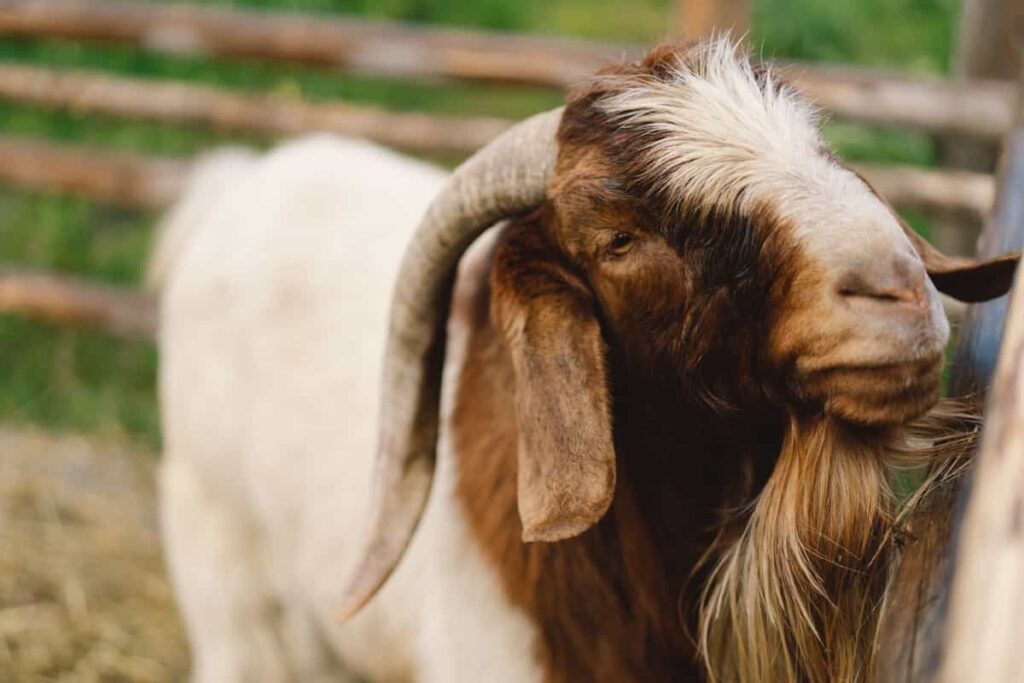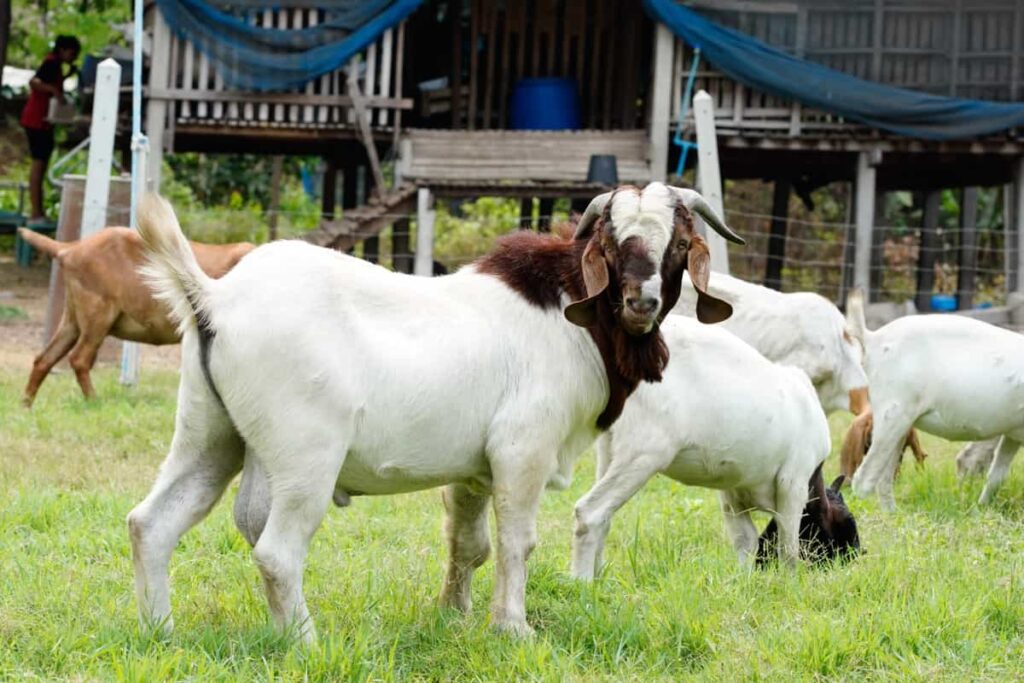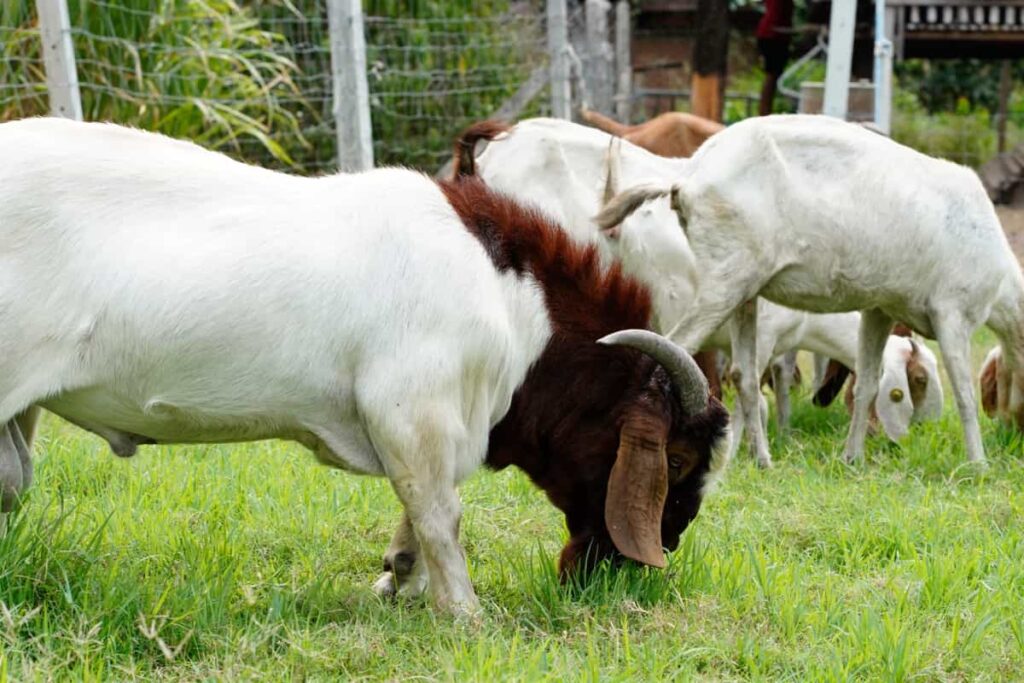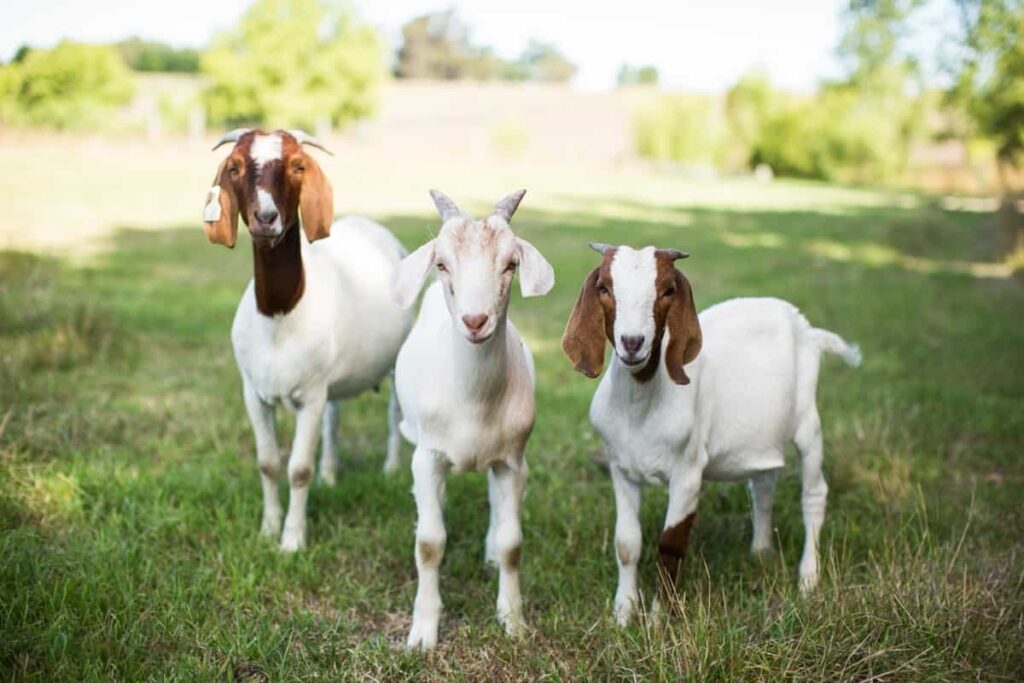Different goats are good in various aspects, whether it’s milk production, meat quality, wool yield, or versatility for small farms. Selecting profitable goat breeds requires careful consideration of factors such as breed characteristics, climate suitability, market demand, and personal preferences.

Dairy Goats: Breeds That Excel in Milk Production
When it comes to dairy goats, selecting breeds that are good in milk production is key for maximizing profitability on your farm. These goats are known for their high milk yield and quality, making them a top choice for dairy farmers looking to increase their revenue. Goat breed selection plays a crucial role in determining the success of your dairy operation.
Some popular dairy goat breeds include Saanen, Nubian, Alpine, and LaMancha. Each goat breed has unique characteristics that contribute to its exceptional milk production capabilities. Dairy goats are hardy animals that can adapt well to various climates and management practices.
Meat Goats: Best Breeds for High-Quality Meat
Certain breeds stand out for their exceptional traits in raising meat goats for high-quality meat production. Boer goats are renowned for their robust conformation, making them a top choice among farmers aiming for premium meat quality. Kiko goats are another favorite breed known for their excellent maternal instincts, hardiness, and hearty appetite.
Spanish goats are valued for their adaptability and natural browsing abilities, which translate into lean yet tender meat with distinct flavor profiles. Savanna goats are recognized for their strong constitution and efficient feed conversion rates, making them an economical option for meat production.
Fiber Goats: Profitable Breeds for Wool and Mohair
When it comes to fiber goats, there are breeds specifically tailored for producing high-quality wool and mohair. These goats not only provide luxurious fibers but also have the potential for great profitability in the textile industry. Angora goats, known for their soft mohair fleece, are popular choices among breeders looking to capitalize on the demand for luxury fibers. Their long, silky locks can be sold at a premium price.
On the other hand, Cashmere goats are prized for their fine undercoat, which is used to create luxurious cashmere yarns. The exquisite quality of their fiber makes them highly sought after by textile manufacturers worldwide. By focusing on breeding and managing these specialty fiber goats effectively, farmers can maximize their profits from selling raw materials or finished products like yarns and fabrics.
In case you missed it: Profitable Kenya Goat Breeds for Commercial Dairy and Meat Business

In addition to Angoras and Cashmeres, Pygora goats offer a unique blend of mohair and cashmere-like fibers. This crossbreed provides versatility in fiber production while still maintaining excellent quality standards. Investing in fiber goat breeds can open up lucrative opportunities in the textile market, which has a high demand for premium natural fibers.
Dual-Purpose Goats: Versatility in Small Farm Settings
These hardy animals not only provide a steady supply of milk but also yield high-quality meat. Their adaptability makes them ideal for small farm settings where space is limited, yet productivity is key. With dual-purpose goats, farmers can maximize their resources by getting both dairy and meat benefits from a single animal.
This efficiency translates into increased profitability and sustainability for the farm operation. Their ability to thrive in various climates and conditions further enhances their appeal to small-scale farmers looking to diversify their livestock offerings without overwhelming themselves with complex management practices.
Key Factors in Selecting Goat Breeds for Your Farm
The most important aspect is understanding the purpose of your farm – whether you are focusing on dairy production, meat yield, fiber production, or a combination of these. Each goat breed has unique characteristics and strengths that make them well-suited for specific purposes. Climate and environment play a major role in choosing the right goat breed, as certain breeds thrive better in different conditions.
Consider the space available on your farm, as some breeds require more room to roam while others can adapt well to smaller areas. Another factor to keep in mind is the temperament of the goat breed – some may be easier to handle and manage than others. Researching and understanding the care requirements of each breed will help ensure their overall well-being and productivity on your farm.
Breed Profiles: Top Performers in Dairy Production
One such breed is the Saanen, known for its high milk yield and excellent butterfat content. Saanens are hardy animals that adapt well to various climates, making them a popular choice among dairy farmers. Another top performer in dairy production is the Nubian breed. Renowned for its rich and creamy milk with a slightly higher butterfat content than other breeds, Nubians are ideal for cheese-making enthusiasts looking for quality milk.
In case you missed it: Best Meat and Milk Goat Breeds in India: Considering these Goats in Commercial Goat Farming Business

The Alpine breed is also highly regarded in the dairy industry due to its impressive milk production capabilities. Alpines are known for their consistent milk supply throughout the lactation period, making them reliable partners on any dairy farm.
Breed Profiles: Leaders in Meat Yield
Boer goats have high-quality meat and fast growth rates. They have a robust frame and are efficient converters of food into muscle mass. Another breed to consider is the Kiko goat, prized for its hardiness and excellent maternal instincts. Kikos thrive in various climates and terrains, making them ideal for meat production under diverse conditions.
Spanish goats are another standout choice with their adaptability and resistance to harsh environments. They produce flavorful, lean meat sought after by many consumers looking for a healthier alternative. By selecting breeds like these, renowned for their meat-producing capabilities, you can ensure maximum profitability in your goat farming endeavors.
Breeding Strategies for Enhanced Profitability
Breeding strategies play a crucial role in maximizing profitability on your goat farm. To ensure success, it’s essential to carefully select superior breeding stock with desirable traits such as high milk production or meat yield. Consider crossbreeding different goat breeds to create offspring with the best qualities from each parent, known as hybrid vigor. This can result in healthier and more productive goats for your operation.
Additionally, focus on proper nutrition and healthcare for both the parent goats and their offspring. A well-balanced diet enriched with essential nutrients will promote optimal growth and development. Keep detailed records of each goat’s performance and lineage to monitor your breeding program’s progress regularly.
Managing Your Herd for Long-Term Success
It is crucial in ensuring profitability and sustainability on your farm. Regular health check-ups are essential to prevent diseases and maintain the well-being of your goats. Providing a balanced diet rich in nutrients will help keep your animals healthy and productive. Creating a comfortable living environment with proper shelter, ventilation, and space for exercise is important for the overall welfare of your herd.
In case you missed it: Effective and Profitable Commercial Goat Farming: Key Rules to Start from Scratch, Best Milk and Meat Goat Breeds

Additionally, effective record-keeping allows you to track performance metrics, monitor breeding outcomes, and make informed decisions for future management strategies. Implementing effective breeding strategies and proper herd management techniques will further increase the success of your goat farming venture. With the right farm approach, you can achieve long-term success and sustainability in your goat farming business.
- Napier Grass for Goat Farming: A Beginners Guide
- Community Engagement and Networking Opportunities for Goat Farmers
- Top Goat Breeds for Maximum Profitability
- Goat Feed Options for Weight Gain
- Types of Grass Growing for Goat Farm
- How to Train Goats for Milking: A Beginners Guide
- Goat Milking Practices and Equipment: A Beginner’s Guide
- Goat Farming for Fiber: Producing Mohair and Cashmere
- Maximizing Goat Milk Production: Tips for Dairy Goat Farmers